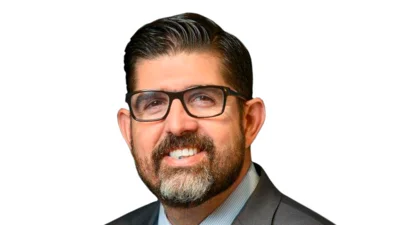A group long known for its work with older adults has made a major investment to create an institute aimed at radically changing the way that age group is treated in Southwest Florida.
Shady Rest Foundation, a name synonymous with eldercare in Lee County, has pledged $5 million to Florida Gulf Coast University’s Marieb College of Health & Human Services to aid in the creation and operation of the Shady Rest Institute on Positive Aging.
“This is going to be transformative for Southwest Florida,” says Shawn Felton, interim dean of Marieb College. “The region obviously has a vast need to enhance services for older adults. FGCU is committed to providing educational services and research for older adults. We are confident this institute will become the hub to connect seniors to all the services they need.”
Thomas Felke, associate dean of Marieb College and the fledging institute’s executive director, says while it won’t be a brick-and-mortar center at first, he expects its impact to be palpable.
“Something like this is needed here,” he says. “We don’t want it to be a place where people are coming to us. We want to be able to meet people where they are.”
The longtime FGCU social work professor has been active in community efforts to improve the lives of older residents and individuals experiencing food insecurity and homelessness. He is board chair of The Dubin Center, which helps those with dementia and their families, and a board member of the Area Agency on Aging of Southwest Florida and the Naples Senior Center.
Through his many community connections and previous research, he knows this about older people: “Despite being the largest segment of the population, they feel like a forgotten segment and have a hard time finding and accessing services.”
The institute will coordinate the many agencies offering help to older adults and try to form a central clearinghouse through which people can locate and access services. It will also provide educational outreach for those working with older residents or who want to but need additional training; advocate for policies beneficial to this age group; and help develop an adequate workforce to provide services for the burgeoning 65+ population. The last part is especially important since it’s expected this population segment will increase more than 50% in Lee and Collier counties and 37% in Charlotte County by 2040.
Felke says the institute will also do what FGCU researchers do best: community-impact research.
Shady Rest Foundation previously gave $4.1 million for scholarships to Marieb College undergraduate and graduate students who plan to pursue healthcare careers involving older adults. The foundation’s board members believe this institute is a good next step.
“It fits with our mission,” says Jo Stecher, Ph.D., R.N., board vice chair and a former FGCU nursing professor who taught gerontology, among other subjects. While many entities offer services for older adults, “FGCU will be the umbrella, and all the spokes coming out will be the other organizations,” she says.
Felke envisions the institute as a multidisciplinary entity, much like The Water School at FGCU, where researchers from various disciplines come together to address problems. This makes sense, he says, in a state that leads the nation in the share of people over 65.
He foresees involving Marieb College experts, such as social workers, occupational and physical therapists and nurses, as well as bringing in the Exercise is Medicine program. From the Lutgert College of Business, experts in wills, trusts and estate planning would be valuable. U.A. Whitaker College of Engineering experts could focus on home modifications and livable communities. From the College of Arts & Sciences, music therapy and art therapy could be included.
And that’s just the beginning. Felke sees many possibilities for the institute, which he is approaching with this mantra: “Aging is not a disease; it is an opportunity.”
Felton says, “We are so thankful for the vision of the Shady Rest board and their commitment to this initiative. Shady Rest will forever be tied to Southwest Florida and its commitment to improving care for older adults.”
Original source can be found here.

 Alerts Sign-up
Alerts Sign-up